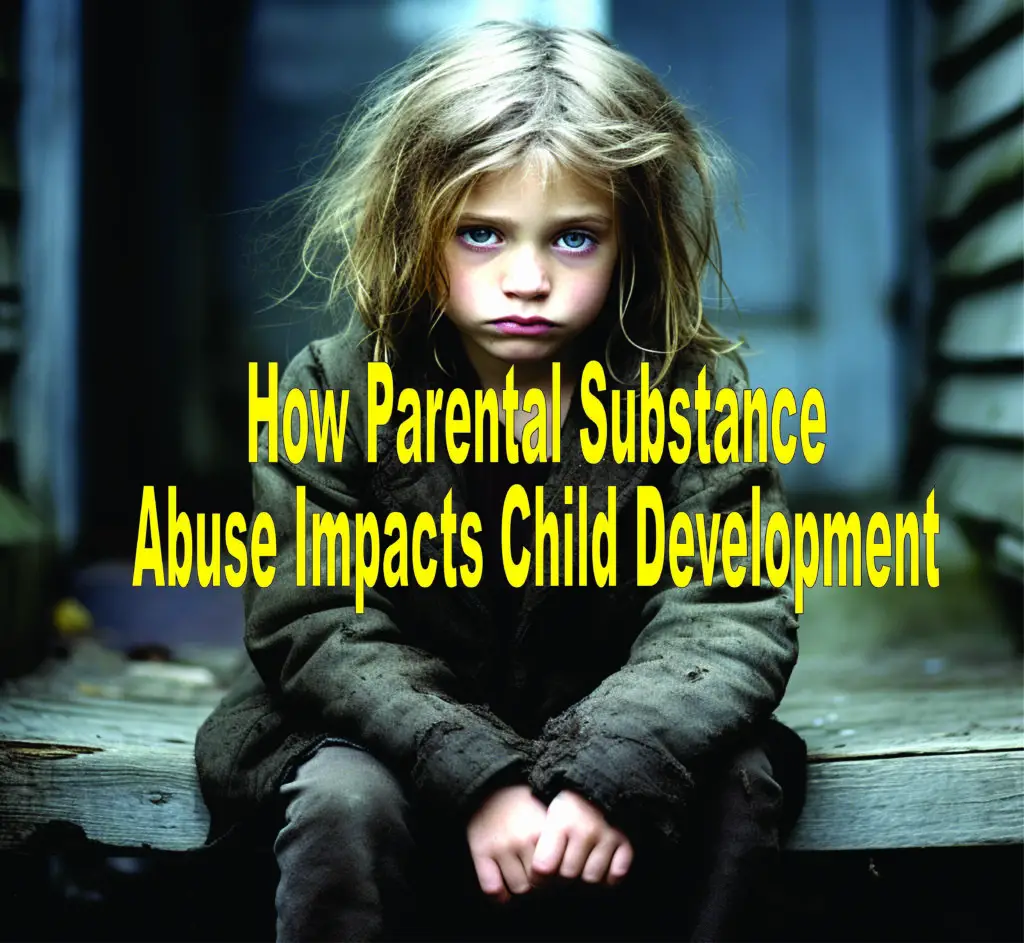Last updated on May 2, 2024 by Kathy
When a parent has a substance abuse problem, it affects more than just their own life. It can also significantly impact a child’s life. Here are some of the most common ways parent substance abuse affects child development.
Emotional and mental health effects
Parental substance abuse can have serious effects on a child’s emotional and mental health. It often creates an unstable home environment filled with uncertainty, inconsistency, and chaos.
For example, a child may be neglected or depressed because a parent is preoccupied with obtaining drugs.
Educational Challenges
Children who grow up in homes with addicted parents often face significant educational challenges. For example, children’s daily routines may be disrupted, affecting their attendance or performance at school.

Developing unhealthy coping mechanisms
Children of addicted parents sometimes adopt unhealthy coping mechanisms to deal with their situation, such as engaging in risky behaviors such as self-harm.
social barriers
Social interaction can also become a challenge for children of addicted parents.
The stigma associated with addiction often leaves these children feeling isolated and ostracized by their peers. This relative exclusion can lead to problems in building healthy relationships in the future.
psychological disorder
Research shows a clear link between parental substance abuse and the development of psychological disorders in children. Regular exposure to stressful, hostile or neglectful environments often exposes these young people to illnesses such as depression, anxiety and post-traumatic stress disorder.
Impaired development
Parental substance abuse can also affect physical development. For example, children may face malnutrition as scarce resources are diverted to sustaining their parents’ drug addiction.
Additionally, prenatal exposure to drugs or alcohol can cause a variety of health problems and developmental delays in babies at birth.
potential abuse and neglect
Even more disturbing is the fact that children of substance-abusing parents are at higher risk for physical or sexual abuse.
More commonly, they often face neglect and their basic needs, such as food, shelter and care, are not adequately met. This experience not only exposes them to direct harm, but can also result in severe trauma.
addiction risk
Another significant impact is the increased likelihood that children of addicted parents will develop substance abuse problems themselves.
This is not only related to genetic susceptibility but also to environmental influences. For example, witnessing drug use while growing up can normalize a child’s behavior.
seek treatment
Overcoming addiction is important not only for the addict, but also for those around them, especially children. If you are a parent with a substance abuse problem, you should seek professional help, not only for your own sake, but for your child’s as well.
With the right support and resources, such as therapy, counseling, or medication-assisted treatment, a path to recovery can be forged. One of the best ways to overcome drug addiction is to enroll in a program at a professional treatment center.
Allendale Treatment Center, for example, is Indiana’s most trusted addiction treatment center, offering personalized care plans and a holistic approach that addresses the individual’s unique needs and helps them overcome addiction.
At a treatment center, you can benefit from individual therapy, group counseling sessions, and even family therapy plans.
Other possible treatment options that can help you recover include cognitive behavioral therapy (designed to help individuals understand and avoid triggers that lead to substance use) and motivational interviewing (which can be valuable for encouraging a person’s motivation to recover).
In addition, 12-step programs such as Alcoholics Anonymous or Narcotics Anonymous can provide a supportive community environment for those in recovery.

final thoughts
Now that you know how much parental substance abuse can affect a child’s development, you definitely need to seek professional help if you are addicted to drugs.
Start by talking to your doctor, who can help you find the right treatment option for your individual needs. Additionally, gain support from loved ones as you enter the recovery phase. With time and effort, you can overcome addiction and prevent your problems from affecting your children.




